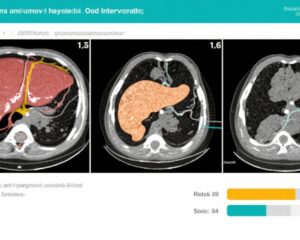Highlight
– A high-fat diet rich in olive oil promotes lung metastasis of triple-negative breast cancer (TNBC) without affecting tumor growth or immune cell profiles.
– Olive oil-derived oleic acid integrates into cancer cell membranes through fatty acid binding protein 5 (FABP5), activating the PKC/ALDH signaling pathway to enhance metastatic potential.
– FABP5 is overexpressed in TNBC compared to other breast cancer subtypes, correlating with poorer overall survival.
– Clinical implications suggest caution in olive oil consumption for patients with TNBC and underscore dietary fat composition as a critical factor beyond obesity in cancer progression.
Study Background and Disease Burden
Obesity is a well-established risk factor for multiple cancers, including breast cancer. High-fat diets (HFD) contribute substantially to obesity and metabolic dysfunction, but the impact of different dietary fat sources on tumor biology remains poorly understood. While saturated fats like lard and butter have been associated with impaired antitumor immunity and accelerated tumor growth in animal models, diets rich in unsaturated fats—especially olive oil—are often considered healthier. However, conflicting data have emerged about their effects on cancer metastasis, particularly in aggressive breast cancer subtypes such as triple-negative breast cancer (TNBC), which lacks estrogen, progesterone, and HER2 receptors and has limited targeted treatment options. Unraveling the influence of dietary lipids on TNBC progression and metastasis is key to developing integrative therapeutic strategies.
Study Design
Led by Prof. Li Bing’s team at the University of Iowa, the study published in Cancer Research (September 2025) employed a murine model using three dietary regimens:
1. High-fat olive oil diet — 45% calories from fat with 40% of fat calories from olive oil.
2. High-fat cocoa butter diet — 45% calories from fat with 40% of fat calories from cocoa butter.
3. Low-fat control diet — 5% calories from fat, fat derived from soybean oil.
Post-weaning mice received the diets for 12 weeks to induce comparable obesity across both high-fat groups. Subsequently, TNBC cells were orthotopically implanted to assess primary tumor growth and metastasis. Primary endpoints included tumor size, lung metastatic burden assessed by lung weight, surface nodules, histology, and markers of cancer stemness and metastasis (ALDH expression). Circulating tumor cells (CTCs) and vascular permeability were also evaluated.
Key Findings
– Both olive oil and cocoa butter high-fat diets induced similar degrees of obesity and metabolic alterations without significantly changing immune cell populations or circulating cytokine levels.
– Tumor growth curves and size at 4 weeks post-implantation did not differ significantly among olive oil, cocoa butter, and low-fat diet groups.
– Remarkably, mice fed the olive oil high-fat diet exhibited a marked increase in lung metastases compared to cocoa butter and low-fat controls, evidenced by increased lung weight, greater number of metastases on lung surfaces, and more tumor nodules on histological examination.
– Enhanced ALDH expression in primary tumors and metastases of olive oil-fed mice indicated increased cancer stem-like properties and metastatic capacity.
– Early-stage analysis showed that olive oil feeding significantly elevated circulating tumor cell counts as early as day 1 post tumor implantation, without detectable differences in lung vascular permeability, suggesting olive oil’s impact is primarily on tumor dissemination phases rather than vascular extravasation.
Mechanistic Insights
Investigations into the underlying molecular mechanisms revealed a pivotal role of fatty acid binding protein 5 (FABP5). The abundant oleic acid in olive oil binds to FABP5, facilitating its integration into TNBC cell membranes. This interaction activates the Protein Kinase C (PKC)/ALDH pathway, enhancing cancer cell stemness and metastatic potential.
Using genetic knockout models, the research team demonstrated that FABP5 deletion did not impair tumor cell proliferation but significantly diminished the pro-metastatic effects of olive oil diets, confirming FABP5 as a key mediator.
These findings dovetail with 2020 work showing that lymph-borne oleic acid uptake by metastasizing melanoma cells protects them against ferroptosis through incorporation into their membranes, enhancing survival during dissemination.
Expert Commentary
This study challenges the simplistic notion of olive oil as an unconditionally benign dietary fat in cancer contexts. It underscores that the biological effects of dietary fats on tumor progression are complex and context-dependent, particularly regarding their role in metastasis.
The findings offer mechanistic plausibility that certain unsaturated fatty acids can directly promote metastatic dissemination through specific cellular lipid interactions rather than systemic immune modulation. The identification of FABP5 as a druggable target may open avenues for adjuvant therapies aimed at mitigating dietary fat-driven metastasis in TNBC.
Limitations include the translational gap from murine models to human dietary patterns and the focus on a single breast cancer subtype. Additional clinical and epidemiological studies are warranted to validate these findings in breast cancer patients.
Conclusion
Prof. Li Bing’s team provides compelling evidence that the composition of dietary fats exerts a greater influence on breast cancer metastasis than obesity alone. Specifically, a high-fat diet rich in olive oil promotes lung metastasis of triple-negative breast cancer via FABP5-mediated oleic acid incorporation and activation of the PKC/ALDH axis.
Given the elevated expression of FABP5 in TNBC clinical samples and its negative prognostic association, there is a strong rationale for dietary caution in TNBC patients regarding olive oil consumption. More broadly, this research highlights the critical importance of nutritional precision in oncology and urges balanced, moderated fat intake rather than unreserved endorsement of any single “healthy fat.”
Future research should explore FABP5 inhibitors and the interplay between dietary lipids and tumor microenvironment as innovative strategies to combat metastatic breast cancer.
References
1. Avellino A, Jiang X, Lee M, et al. An Olive Oil-Based High-Fat Diet Promotes Obesity-Driven Metastasis of Triple-Negative Breast Cancer. Cancer Res. 2025; Published online September 5, 2025.
2. Kunkemoeller B, Prendeville H, McIntyre C, et al. The source of dietary fat influences anti-tumour immunity in obese mice. Nat Metab. 2025;7(8):1630-1645.
3. Ubellacker JM, Tasdogan A, Ramesh V, et al. Lymph protects metastasizing melanoma cells from ferroptosis. Nature. 2020;585(7823):113-118.



